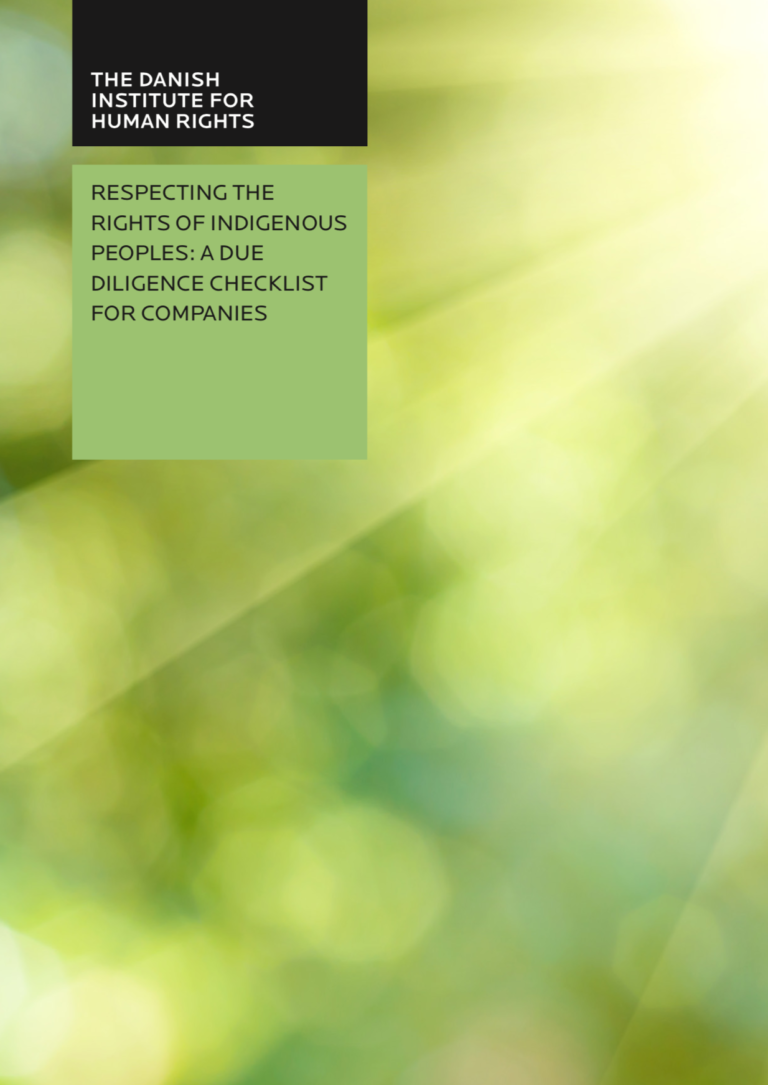This Checklist seeks to provide companies with operational guidance on how to ensure due diligence when operating in areas where projects may affect indigenous peoples. Based on the United Nations Declaration on the Rights of Indigenous Peoples (UNDRIP) and ILO Convention No. 169, this Checklist aligns the principles and rights in these two instruments with the human rights due diligence approach set out in the UN Guiding Principles on Business and Human Rights.
The UN Guiding Principles on Business and Human Rights (UNGPs) provide that the due diligence process by business should include the following steps:
- Assessment of human rights impacts (actual and potential);
- Integration of findings from impact assessments into relevant internal processes;
- Monitoring performance and responses to ensure any impacts are being effectively addressed; and
- External reporting and communication on such responses.
This Checklist focuses on the first and third of these four steps. Due diligence is an ongoing process, rather than a single event, and active engagement must continue for the duration of the project.

